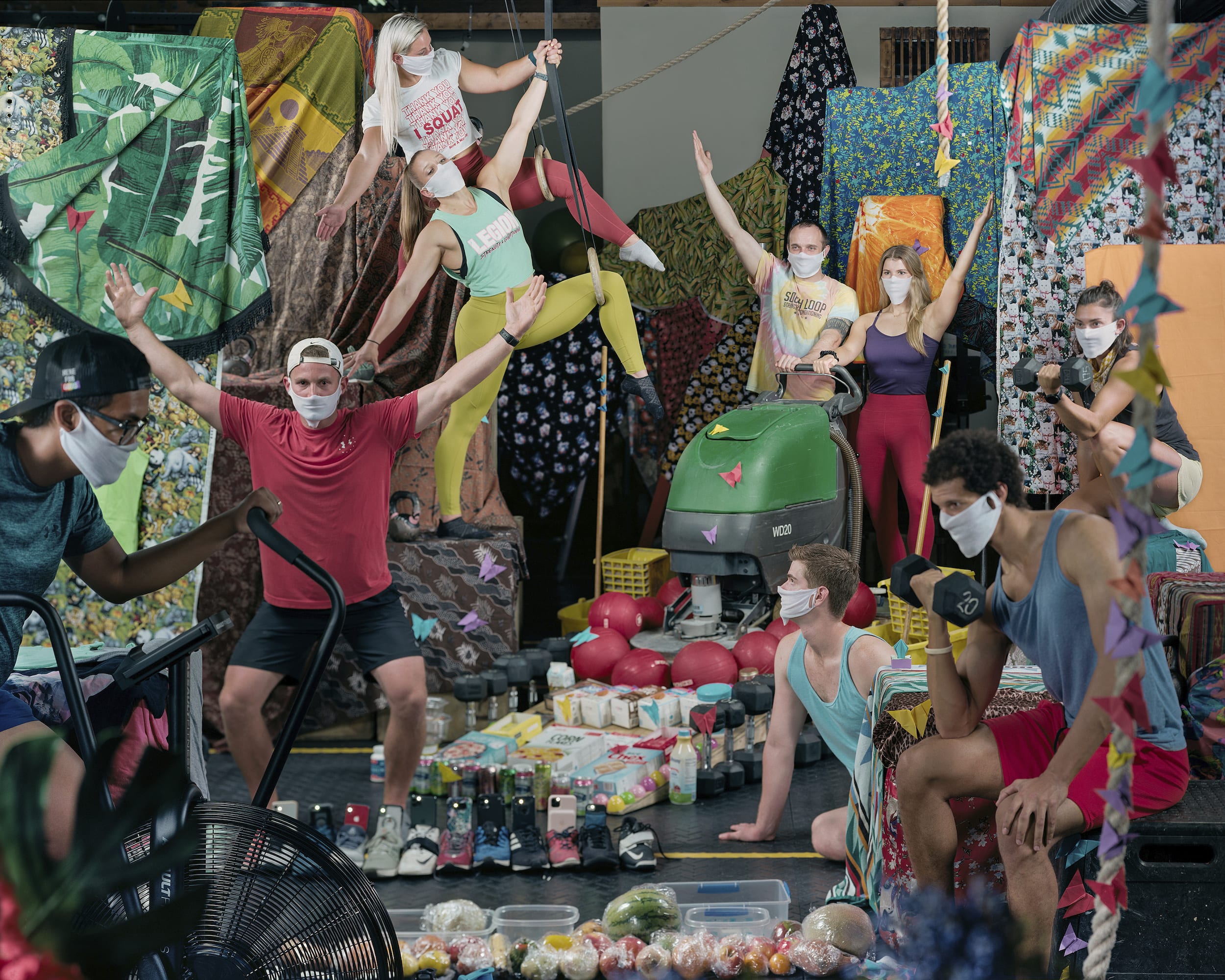Community, love, isolation and health in Leonard Suryajaya’s Quarantine Blues
Gym members posing with gym equipment, snacks from home, and phones in their shoes.
Source: © Leonard Suryajaya.
Gordon and his son, David, at the entrance of South Loop Strength and Conditioning gym in Chicago, IL. David is wearing a hand-made face-mask armour. They are framed by Gordon’s workout shoes collection.
Source: © Leonard Suryajaya.© 2022 - 1854 MEDIA LTD